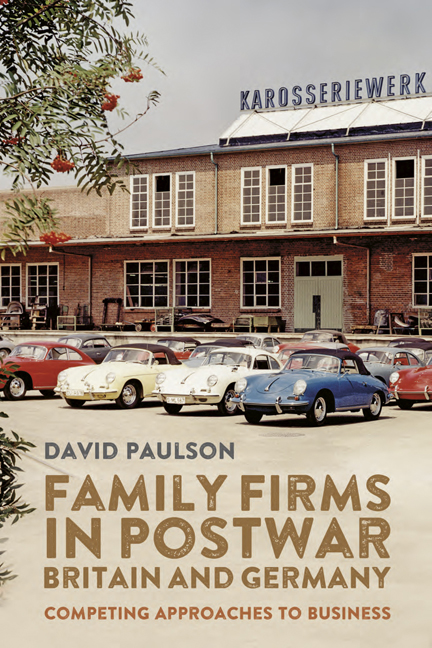6 - Kenrick & Jefferson Ltd., West Bromwich
Published online by Cambridge University Press: 10 January 2024
Summary
Kenrick & Jefferson was a British printer and stationery manufacturer, founded in West Bromwich in 1878 and remaining there until its closure in 2000. In the first half of its life, K&J was remarkably successful, delivering consistent sales growth with impressive rates of profitability. It did so while continually investing in the business's technical capabilities and sustaining a performance culture among staff members who could be confident that consistent personal performance meant a job for life. After World War Two, K&J found circumstances more challenging. Despite managing to retain elements of its paternalistic ethos while simultaneously investing in new equipment and processes, the company struggled to sustain pre-war standards. In this chapter, we review K&J's performance between 1949 and 1979, assessing the importance of key elements of the business, most notably sales, innovation, and management. To reflect the main periods of change, and for ease of organisation, these elements are examined across three time periods: up to the mid-1950s; from 1955 to the late 1960s; and from 1970 to 1979. As we follow this timeline we will discover those strengths which sustained K&J beyond its 100th anniversary, and the weaknesses which ultimately overcame them and ensured its eventual demise twenty-one years later.
Management and Organisation to 1955
Between its foundation in 1878 and the end of the Second World War, K&J had retained a paternalistic culture in which both those who owned and led the business and those who worked in it frequently referred to their membership of the “K&J Family”. “Mr. Fred” Jefferson (members of the owning families were addressed in this style), second-generation chairman and joint managing director with his brother Edward, combined a focus on the company's perfor-mance with a commitment to its members’ wellbeing. On his death in 1940, K&J was in good financial and operational condition. It prospered through the Second World War, producing ration books and similar government-procured products in huge quantities. The immediate post-war years had been prosperous too, but there were signs that this good fortune could not last and that K&J was no longer the company it had been. On the eve of the company's 75th anniversary, the business boom of the immediate post-war years had passed; neighbouring countries, notably Germany, had begun to rebuild their economies; the future of trade with Britain's colonies was uncertain.
- Type
- Chapter
- Information
- Family Firms in Postwar Britain and GermanyCompeting Approaches to Business, pp. 142 - 168Publisher: Boydell & BrewerPrint publication year: 2023



